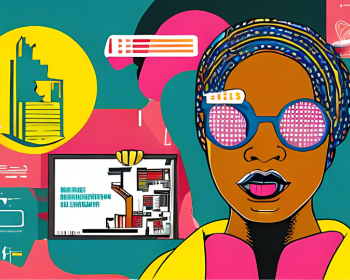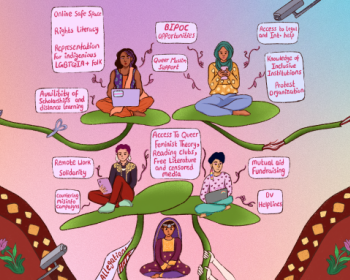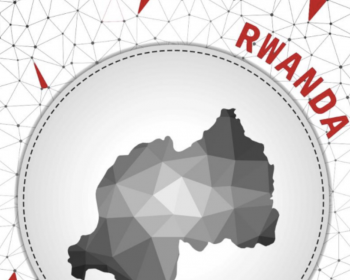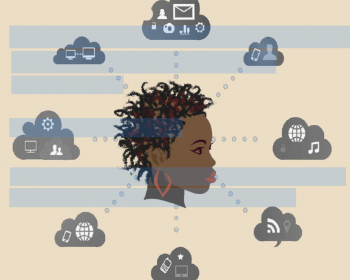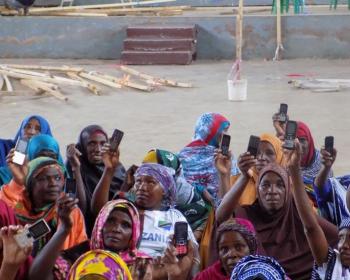gender digital divide
E-governance models are leaving women and gender minorities behind in Kenya, despite the Kenyan government's increasing focus on digitising delivery of government services. Due to this, there remains a challenge of who gets to access these services through technology.
This new GenderIT.org edition collects stories of women and LGBTIQA+ individuals and communities from South and Southeast Asia discussing the impact of the gender digital divide and how they respond to the challenges and barriers.
This study combined quantitative and qualitative research to explore what socioeconomic factors inhibit internet access for women in rural and urban settings in Rwanda. It was produced with the support of APC as part of the Feminist Internet Research Network (FIRN).
This policy brief highlights what the Women of Uganda Network (WOUGNET) and the Centre for Multilateral Affairs have been doing over the past two years in closing the gender digital divide in Uganda, as well as analysing the state of this divide and offering recommendations to various stakeholders.
This policy brief presents the findings from an evidence-based study that examines the gendered aspects to women’s internet access on mobile broadband connections in Uganda.
A team of staff of CITAD went to Shara in the Sumaila local government area of Kano to conduct a COVID-19 sensitisation programme for teachers and students as well as parents of Shara Primary School, a community school that CITAD and the community established about four years ago.
This report presents the findings from an evidence-based study that examines the gendered aspects to women’s internet access on mobile broadband connections in Uganda.
Availability and affordability of the internet have a major impact on whether women are able to access and use it. In this article, the authors explore what happens when community networks bring the internet closer to women and the small and big ways in which this changes their lives.
Community networks provide alternatives to internet access infrastructure that is controlled by either companies or the state. In the remote area where Kondoa Community Network works, even patchy services have been helpful to ensure access to better education and medical services.
In this exploration of the questions of access and economy for women in Ghana, the author takes a closer look at the digital gender gap. When women don't have equal access to the internet, then what are the economic implications?

Association for Progressive Communications (APC) 2022
Unless otherwise stated, content on the APC website is licensed under Creative Commons Attribution 4.0 International (CC BY 4.0)



